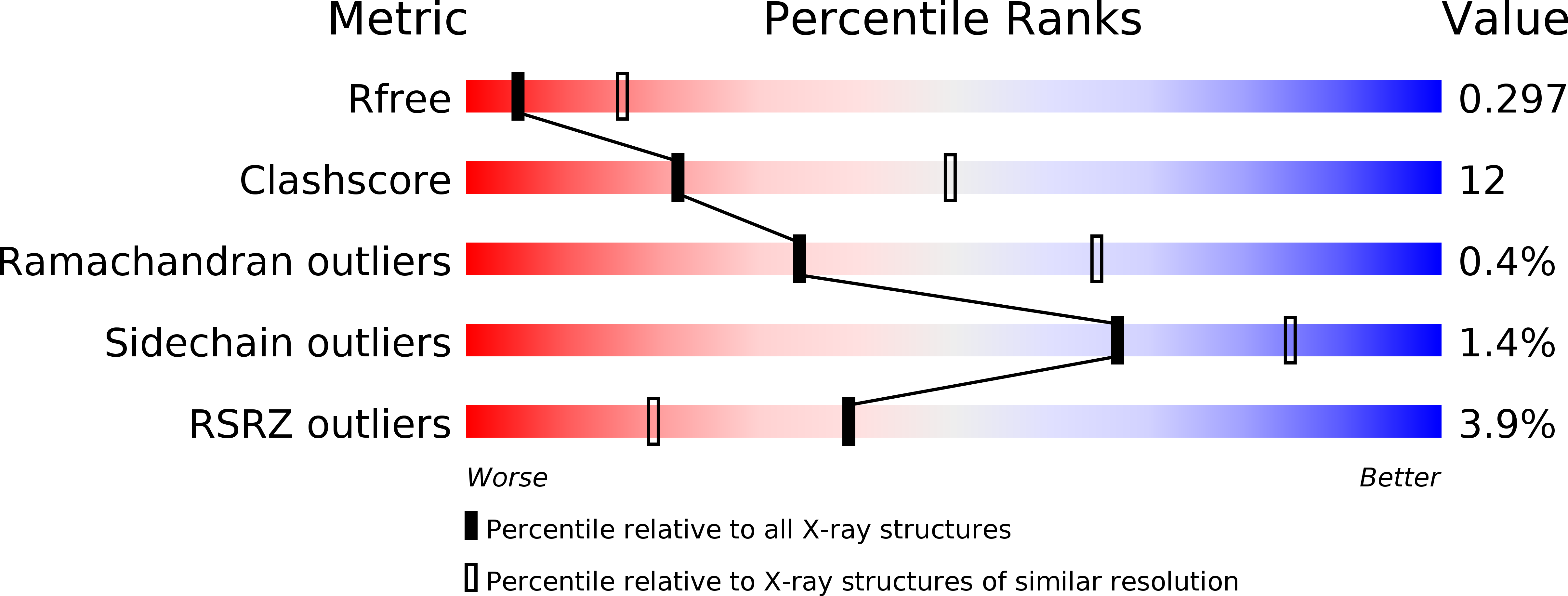
Deposition Date
2012-08-03
Release Date
2012-10-17
Last Version Date
2024-05-08
Entry Detail
PDB ID:
4B5H
Keywords:
Title:
Substate bound inactive mutant of Neisseria AP endonuclease in presence of metal ions
Biological Source:
Source Organism(s):
NEISSERIA MENINGITIDIS (Taxon ID: 487)
Expression System(s):
Method Details:
Experimental Method:
Resolution:
3.05 Å
R-Value Free:
0.29
R-Value Work:
0.18
R-Value Observed:
0.19
Space Group:
P 43 21 2


